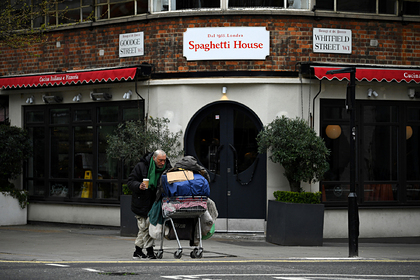NIESR: UK economy could start to stagnate 
The UK economy could face a prolonged period of stagnation, which will impoverish its citizens and cause damage household income of the country. Such data are cited in a report by the National Institute for Economic and Social Research (NIESR), published by The Guardian.
In its research, NIESR predicts that the country's recovery from the pandemic will slow the development of the UK economy. It will be accompanied by an increase in prices for goods and services, and will also contribute to an increase in inflation. According to NIESR director Jagjit Chadh, this was due to the wrong moves by the government and the Bank of England after the 2008 financial crisis. “For many years there has been a constant problem of economic growth. The pressure on poorer households has been going on for more than ten years, ”he said. So, in his opinion, the government of the country did not properly engage in investments in problem sectors of the economy. According to the report, in all regions of the UK, with the exception of London, impoverishment of citizens will occur and the gap between rich and poor will widen.
The NIESR spokesperson notes that the biggest hit on the disposable income of poor families (money left over from mandatory payments adjusted for inflation) will be hit by cuts in social benefits and rising inflation (up to 5 percent), thereby doubling the poverty rate in the UK. According to the Joseph Rowntree Charitable Trust (JRCT), there are currently British adults with incomes below £ 70 (about $ 94.5) per week, as well as families with two children and incomes below £ 140 (about $ 189) a week cannot afford to pay for basic living expenses.
The poorest UK citizens have previously been deprived of some form of support after the government scrapped the social safety net introduced in 2020. Over the course of the programs, the authorities have additionally invested 80 billion pounds sterling (107 billion dollars) in the economy. During the pandemic, the government compensated citizens for temporary leave to save jobs and gave increased benefits to six million people. These measures softened the blow of lockdowns and prevented a sharp rise in unemployment.